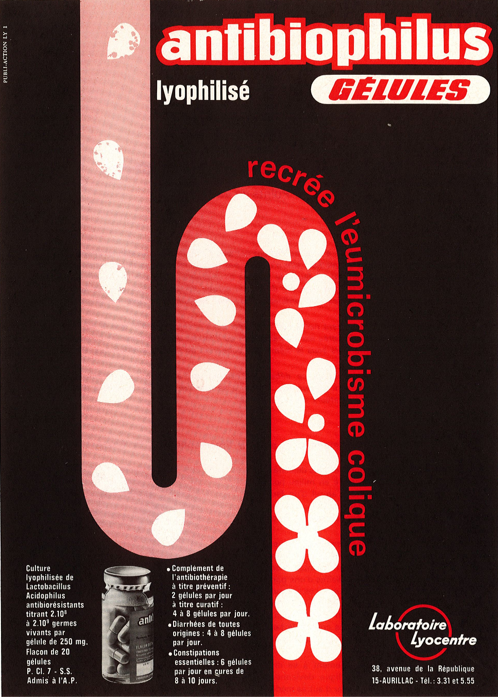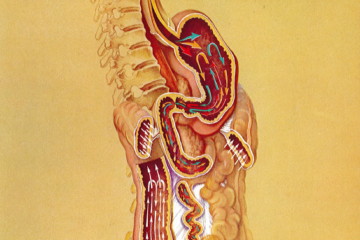This probiotic preparation (capsules) containing lyophilized bacteria was recommended for the treatment (or prevention) of intestinal disorders such constipation and diarrhea (in particular persistent watery diarrhoea). The objective with this drug was to reconstitute the decreased or damaged bacterial microflora. There are many digestive disorders that can benefit from the use of living microorganisms (probiotics) to promote gut health. It was a fairly innovative approach in the 1970s, and a common approach today to treat alteration in the intestinal microbiota (dysbiosis). Nowadays, probiotics have gained a significant role as adjunctive treatment of digestive disorders. There is a large choice of probiotics, using many bacterial strains. Their effects is usually dependent on genera of strain used, the dose but also the age of the host.
The bacteria Lactobacillus acidophilus is a key component of the normal intestinal microflora in Human. It is also a microorganism widely used in the process of yogurt fermentation and in cheese preparation. The bacteria utilizes glucose to produce lactic acid by catabolism (homolactic fermentation). In general, lactic acid bacteria are beneficial probiotic organisms because they contribute to improve nutrition, microbial balance, and immuno-enhancement of the intestinal tract. These effects are beneficial to combat both diarrhea and chronic constipation. The mechanism of action is not always well defined, but probiotics can produce pathogen-inhibitory substances, inhibit pathogen attachment and the action of microbial toxins; they can also stimulate the immune defense of the intestinal mucosa.
Probiotics derived from the bowel flora can be recommended also for the prevention of antibiotic-associated diarrhea, both in children and in adults. They can greatly help to avoid diarrhea, if not to reduce its duration.
An explicit illustration of the drug action within the digestive tube, to reconstitute a protective, active intestinal microflora.



